Electronic Payment System In Bangladesh: Pros And Cons
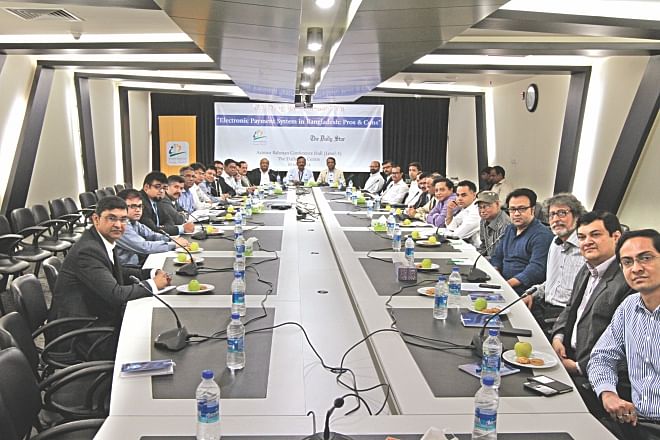
Eastern Bank Ltd. and The Daily Star recently organized a roundtable on " Electronic Payment System in Bangladesh: Pros and Cons". The very timely topic was deliberated upon by experts from various sectors who either provide the service and regulate or utilise it on a regular basis. We present the excerpts below which we believe will help policy makers get a clear insight into the system and formulate policy for its further growth. -- Editor
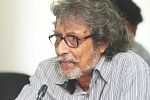
Shahnoor Wahid, Special Supplement Editor, The Daily Star
Today, we have an august gathering of bankers, market researcher, business leaders, telecommunication experts, IT sector professionals, security solution providers and media leaders. We are also customers of various banks. We use different kinds of cards and electronic payment systems. So there is a good opportunity to get a comprehensive view of different aspects of electronic payment from the stakeholders.
We shall hear from bankers about their experience in providing electronic payment services; researchers will present their findings of the effectiveness of these services; business leaders will assess the impact of these services on the overall business development of the country; experts from the technology sector will talk about solutions to ensure safety of electronic transaction; media professionals will tell us what role they can play to make people aware and popularize these services. I hope their recommendations will help develop the electronic payment system further.
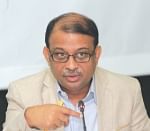
Ali Reza Iftekhar, CEO, Eastern Bank Ltd.
There are so many positive things happening in last couple of years but there are also some challenges that need to be discussed, fine tuned and resolved to develop the electronic payment system further. Here is a short list of challenges:
- Probable cyber crime
-Money laundering
-Perception of people
-Initial high cost for access
-Confidence and security of transaction
-Lack of knowledge of skills
-Attitude to a new product
- Minimising cash based transaction
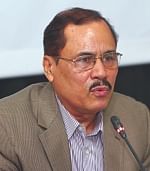
Professor S A Chowdhury, Bangladesh Institute of Bank Management
Until 2009, our banking system had been following a paper based route. After that, with the supportive role of Bangladesh Bank, we moved towards an automated banking system that is compatible with international standards. In the provision of Bangladesh Bank's order, it is said under 7A (e) that Bangladesh Bank will have to promote, regulate and ensure a secured and efficient payment system. From 2009 onwards Bangladesh Bank has issued as many as six sets of regulations starting from automated cheque clearing, BFTN, electric fund transfer and, of late, mobile service. In 2013, they introduced agent banking system. In the meantime, both government and private banks have invested a good amount of resources to make the system automated and updated both horizontally and vertically. They have also taken financial inclusion projects to reach a wider population.
Now, we have to discuss three important areas. The first one is the technology component –the infrastructure. Second one is the security, safety and service. Because it is a national issue in a sense that all the goods and services transacted in a financial market have to be transparent and the payment system must be set in such a way that it will not only be harmonious, consistence and pragmatic but also helpful for people who are using these services. Third is the regulatory and legal framework which is entrusted upon the Central Bank. They are striving for national payment switches so that the inter-bank share holders can have a platform. Now, they are trying to amend certain provisions of the negotiable instrument act and adopt a payment act which is very essential for a robust banking system.
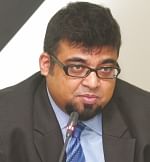
Nazeem A. Choudhury, Head of Consumer Banking, Eastern Bank Ltd.
Changes in electronic payment sector began with the introduction of cards then came mobile money transfer and now with the convergence of mobile with agent banking. In this rapid transformation we have also been going through challenges. Every time we introduce a new technology, we see a lot of resistance from customers because they are habituated with traditional banking practices.
In Bangladesh, very few customers visit the branch physically. Often they do it through a bearer or some representatives. When we introduce a new technology it requires more direct customer interaction. So there lies a big challenge for us to educate people about new banking systems. And the education process should be two-fold: one for those who often visit branches as representative of the account holder and second one is the account holders themselves.
Our banking system is still in a nascent stage of fund transfer. We have to reach that stage where we will do the actual transaction. That will be the real banking experience.
Our card system is restricted to city areas only. We have to go beyond that. Mobile has reached every nook and corner of the country. Through mobile banking we have had a giant leap forward to rural areas. But it is only a cash jump. We have to reduce this overwhelming cash dependence.
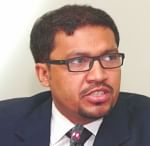
Md. Shawkat Ali, Islami Bank Bangladesh
It is said that in electronic transaction there is a great fear of fraud and hacking. But how many hackings have been done in Bangladesh? Till now it is a myth for us. We often save pin numbers of ATM cards in our mobiles. On the internet we also expose our account details. This all happens due to our lack of awareness. So we need to work out some strategies to educate our customers and raise their awareness level.
Another point is that whenever any fraud happens and we seek help from law enforcing agencies they show an attitude that the bank is involved with the corruption. This mentality needs to be changed. They need to be educated also.
Our ATM booths are restricted to city areas only. We have to go beyond that. We have to reach remote areas with affordable banking facilities.
Next point is related to mobile banking and agent banking. We are trying to reach to the end customers through these systems. But if we consider these systems as full-fledged banking systems then a customer has to bear a lot of expenses. If we go to an agent to withdraw money it costs a lot. People without bank accounts have to bear even more. So we have to come out of cash banking. Introduction of virtual money and plastic money can be good options.
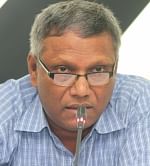
Shameemul Haque, DGM IT, Sonali Bank Ltd.
Bangladesh Bank has progressed a lot in automation. Through BFTN it connects all the banks and their branches the number of which will be around 8000. It helps to transfer remittance from one bank to another very quickly and very easily. If we consider it from the country's perspective it is very effective because it is secure and convenient. But how does this change impact on government owned banks? Previously we used to transfer money through TT (Telegraphic Transfer). We charged a certain amount of money for this service. But introduction of BFTN has made this TT system almost non-existent because BFTN is free of charge. It causes huge loss to the income of government banks. So I think there should be some sort of charge in the fund transferring mechanism.
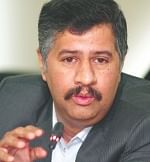
Syed Mohammd Kamal, Master Card
We have talked about the acceptance capability of the card. In Bangladesh cards were launched in 1996. At the same time mobile was launched. Right now the total number of cards in Bangladesh will be over eight million. Out of the eight million, five million cards are proprietary cards and three million are special cards that have global acceptance. At the same time if we compare the acceptance capability of the mobile wallet, by this time there are fourteen-fifteen million mobile wallets in this country. In acceptance capability still the number of card is very low. We have only 8500 merchant and 5500 ATMs in this country. So in total we have only 15000 acceptance point whereas according to the Bangladesh Bank data mobile banking has more than 26000 acceptance points. So we have to look into the convergence of the mobile and card system.
In Bangladesh, total number of unique account holders might be around 36 to 40 million. But there are only 7 million debt cards. So there is room to play. And once this 40 million will be covered then we can really talk about acceptance capability. At the same time, we should also work for building acceptance capability for the cards. Globally 85 % retail purchases are still done in cash. In Bangladesh the number might be 95%. Globally 60 trillion dollars is spent without any mode of instrument. So there is room to play there as well. So we have to build up a card base in the country and in parallel build up a system where the card can be converged with the mobile wallet so that mobile and card can complement each other. Bangladesh Bank has been very keen about the security aspect of the card. So it is a right time to build up a proper ecosystem among bank, card and mobile operator.
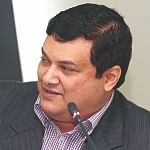
Ershad Ahmed, Regulatory Affairs General Manager, Banglalink
BTRC is the main regulating body of mobile operators and mobile operators are bound to follow their rules and regulations. Our mobile financial service follows a bank led model. So there are also directives from the central bank that we have to follow. This often creates confusion. There should be an alignment between these two regulators to avoid confusions.
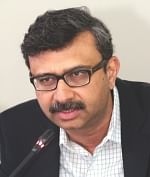
Vivek Sood, CEO, Grameenphone
Bangladesh Bank and other regulators follow an evolutionary approach rather than the revolutionary approach. And that is the right thing to do. We have this mobile banking which has really started in a big way. We say it is only meant for cash in and cash out transaction. But the fact is that it is creating a whole lot of wallet mobile account for customers. And that is the first step. So you need to have agents and players to create those kinds of significant mobile accounts. Now the question is how we use those mobile accounts to facilitate customers to really use the different kinds of payment solutions whether it is for salary or merchant payment etc. That's the next step we need to really figure out because that is not just going across the counter and taking money; it is a much more secured way of doing things because you are basically doing transaction in goods and services through that.
Second thing is financial inclusion. It is going to be tough for the banks to expand and go to the rural markets. That's why there should be some synergy between mobile banking and banking to make that happen. We used to do transaction through SMS. But we need to move towards internet and mobile apps that facilitate these types of services. Now we have 6% penetration of mobile phones in this country. It is growing at a very fast pace. It will really help customers to use a mobile wallet. Now the question comes is this: is Bangladesh really ready for e-commerce? My view is Bangladesh would be ready for e-commerce much faster than some of the other places because there is no other way to transact when we go down to the rural market. E-commerce in China has been growing annually at the rate of 50% percent year on year for the last three years. And after Google, Facebook like classified websites people visit e-commerce sites. I think Bangladesh will not be far behind in this aspect. Dutch Telecom has launched mobile wallet which is based on the NFC technology which is now available in 18 smarts phone. Now you do not really have to have a card. We just need to go to the pause and do the transaction. You can use multiple cards in your mobile handset and choose which card you like to use for transaction. And you have a secure means. You are downloading the application from Google play store and using those applications. We need to really put these revolutionary changes together. Should this be seen in isolation as a payment solution from a banking stand point or should we really put these together for technological solutions which can facilitate the consumers?
Ali Reza Iftekhar
Most of the commercial banks do not have full-fledged online banking systems. And some of them have online banking only at the front desk. But the front and back should be equally digitalized. There must be a smooth management before we launch any product.
We cannot go for any national payment solution without proper dispute management, fraud management and redundant management policies. Without clear policy guidelines about these issues, if any problem occurs, who will bear the responsibility? We have written to the government about this issue. I think there is a tremendous opportunity for banks, mobile operators and bKash like companies to join hands together.
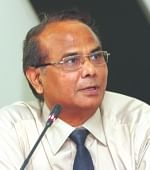
Zahurul Alam, Faculty, IUB
In our financial regulation system there is very little scope for dispute resolution mechanism. There is also lack of uniform approach or uniform regulation for different agencies that are part of the same service.
E-banking system is a very high-tech approach. If there is any sort of requirement from any agency to use the hard copy and the signature then e-banking system will gradually become invalid. If you want to do any sort of transaction with the government agencies you are asked to use hard copy and hard signature. So we really cannot make any electronic transaction with the government agencies. So our government agencies should be made conducive towards e-banking system.

Dr. S M Ahsan Habib, Director, Bangladesh Institute of Bank Management
We are well aware of the benefits of e-payment or online banking services. There are incidents of significant revenue losses due to fraud and manipulation of this system. In 2010, Latin American countries lost $7 billion revenue due to fraud. Globally, this amount has been on the rise. This news obviously created some negative perception among people. When I go for shopping they ask for cash payment. Sometimes a consumer does not get discount by using card. It definitely discourages a customer. So the electronic payment system should be made comfortable.
Online banking can also be the very first step of green banking. We are all aware of the green card system. If we transfer a portion of bank's income to the NGOs who work on environment, they can provide services to rural areas. It will also increase financial inclusion and encourage service providers to expand their services to rural areas.
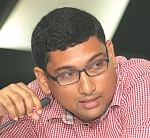
Omar Gias, Sr. Deputy Secretary Communication & PR, BGMEA
Mobile banking has included a significant portion of garment workers in banking services. Now, they can send money to their villages through mobile banking. But the charge is very high. They do not use traditional banking system because that requires a lot of papers and procedures. So mobile banking like hassle free services can be a good option for them. But the charge
should be reduced to a convenient level. Now all the garment factories provide ID cards to their workers. So if we can make an arrangement where the ID card can be used as debt card then a large number of the working population will get access to banking services.

Kamal Quadir, CEO, bKash
Mobile financial service is a highly regulated service now. Bangladesh Bank has clearly defined the role of each stakeholder, from the sale of handsets to the provision of financial services through it. And that has given birth to fifteen million accounts in the last three years. bKash like companies are designed to serve the poor. In Bangladesh there are two major advantages in creating mobile financial services: robust presence of mobile network and possibility of building an efficient distribution arrangement. bKash has capitalised both of these strengths. Another important contributor is the clear role of regulators. If we look at the price sector, 80% revenue goes to the agent. They are playing the biggest role. Then come the mobile financial service operators, who are providing the major resource and, finally, the service provider. In Bangladesh service of electronic payment is significantly cheap and quite affordable for the poor. On the security side, with the rise of smart phones the electronic payment service will be safer.
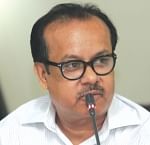
Mohammad Badrul Ahsan, Editor, Weekly First News
I was closely involved with the introduction of the ATM booth service. We are still talking about the same problem that was 19 years ago. Initially we arranged electronic camera, telephone and restricted entrance of more than one person as a safety measure. I am very happy to see the advancement in this sector. Customer experience is much better than in the past. Now people do not go for TT anymore. Now the challenge lies in expansion of this service and engagement of the rural population. Now people are using more than one mobile because there are so many mobile companies and people can afford it. It happens due to the economic growth of the country. If the economic power can be generated more people will certainly look for banking services.
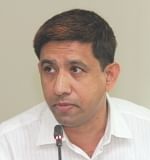
Kh. Ali Kamran Al Zahid, Deputy Director, Bangladesh Bank Payment Systems Dept.
The role of Bangladesh Bank is to regulate a safe and secure payment system. To ensure this Bangladesh Bank has taken some initiatives to implement the electronic payment like Bangladesh Automated Clearing House, BFTN, electronic payment gateway and so on. Now, we are on RTGS which stands for Real Time Gross Settlement.
We divide the payment system into two broad categories. One is user based that means retail payment segment where the customers use the payment system to operate business transactions. And the other one is the high value payment segment where the business to business transaction or corporate to corporate transaction happens. In the retail payment segment we are improving a lot through introducing BFTN, national payment switch, mobile banking like services. Currently we are focusing on the high value payment segment which will be based on RTGS. Our regulation system is focused on innovation. Through innovation we will meet the challenges.
We have already prepared a draft of Payment System Act. We are trying to implement it within a very short time. I hope implementation of the Act will automatically resolve many problems in our existing payment system.
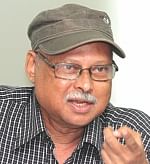
A N MN Nurul Haque, Ex Banker
It is said that electric banking is more secure. But a private sector bank experienced a major fault in credit card where 21 credit cards were used for forging about 100 million taka. Similar thing happened with another private and one public sector bank. So how secure is the electronic banking system?
Some banks are charging high amount of service charge in the name of electronic banking. It is not friendly to poor clients.
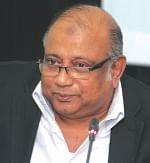
Muhammad A. (Rumee) Ali, Director, BRAC Bank
We first need to understand the definition of e-payment that is electronic payment. It is not new in Bangladesh. People used telephones for payment and that is also a form of electronic payment. Card is also a form of e-payment. So e-payment has been in Bangladesh for sometime.
In the recent past, improvement in technology has allowed a significant increase in inclusivity through e-payment and that means a section of people who earlier had no access to formal financial system of the country are now getting access. Who are these people? They are the vulnerable section of our population.
Now I want to focus on two things: security and access. They converge with each other. Sometimes in giving access you create risk and in lower security you create access. Both are extremely important and need to be managed. I fully support central bank that they are regulating it. This is important not only for money but also for protecting poor people. If you lose their trust you lose them. A regulator needs to hold constant dialogue with all the stakeholders to keep track of changes and challenges. If we want to create access we have to cut down price and if you want lower price you have to make sure about the security system. They are interlinked. The longer you keep people out of the economic system the longer they are poor. By mobile banking we can involve them in the economic system. That is why a tremendous benefit has come through cell phone technology. I think Grameenphone has been playing an important role in creating such an inclusive platform.

Pial Islam, pi Strategy
Two things I want to highlight. One is the skill dimension. You cannot be successful for a long period with limited skill. So we need innovative partnerships not only with banks but also with the MFIs and telcos.
The second comment is on regulation. There are three dimensions of regulation: right kind of policy, enforceability and fraud. Beyond these we also need consistency of policies. We have multiple players in the electronic payment system and all of them need to be treated equally. We have to provide the same kind of flexibility and competitive environment to all of them.
In Bangladesh, mobile banking is at a very early stage. When people see a report on fraud it creates negative perception about mobile banking. So our reporters should consider this from a responsible and long term point of view. I want to mention that this does not anyhow imply to hide incidents of fraud and forgery.
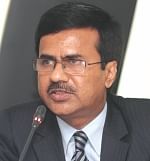
A M M Moyen Uddin, Head of IT, Eastern Bank Ltd.
In Bangladesh, there are some challenges to maintain a secure electronic payment system. SIM replacement is one of the big challenges. Anyone can withdraw anyone's SIM. Some banks send OTP (One Time Password) through SMS. But anyone can get the OTP by replacing the SIM. Bangladesh Bank has introduced one type of second factor authentication from first April. But that is also coming through SMS. That's why SIM replacement issue is so important.
Another important thing is to get access to the NID database. Identity is a main factor in the banking sector. Anybody can open an account through manipulating anyone's NID. If banks are allowed to get access to NID database we can easily verify the real customer.
To reduce the fraud SMS alert after every transaction can be another important step. We can also use call centres for that purpose.

Debdulal Roy, Joint Secretary General, CTO Forum Bangladesh
Bangladesh Bank is working with the election commission to provide access to NID data base. Initially we are developing a web portal. As per regulation, the election commission will only share this NID database with the government agencies. If election commission permits us we will open up this database to commercial and private banks.
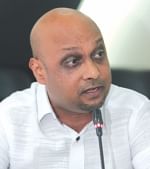
M. Manjur Mahmud, Director & COO, DataSoft
I think we need a platform where a customer can get all the financial services. It has to ensure three things: I can safely identify myself meaning the common KYC. In Latvia there is crowd funding platform where if I want I can lend money and if somebody wants he can take money from that platform. And all sorts of payment things are built into the same platform. And the same thing is only given by two types of agencies. One identifies the KYC is correct and second is the ability to cross platform by everyone that means I can take out money from my bank, I can put that money across where the telcos can carry somewhere and is delivered by one of the microfinance institutes or one of the stores. If the similar thing can be done in Bangladesh it will bring a big change. I would request Bangladesh Bank to look into this innovative solution. It will drastically reduce the cost of transaction.
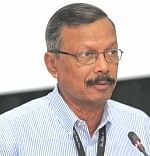
Dr. Salehuddin Ahmed, Managing Editor, The Daily Star
Bangladesh is a fascinating country. If we put our heads together we can do miracles. Mobile banking services have to listen deeper to your consumers. You may be very satisfied with your extraordinary horizontal expansion. But if you want to go deeper you have to listen more. You are yet to reach the poorest.
There are many services where you have to give your signature and pin number of you card. This system is really vulnerable. I think this system should be changed to increase security of the system.
Ali Reza Iftekhar
No service provider will give you free service whether it is visible or invisible. If we can reduce transaction cost we can reduce charge. That's why Bangladesh Bank along with all the banks, financial institutions and telcos should create a common platform. I would also urge telcos to develop some system so that SIM replacement becomes difficult because frequent SIM replacement is a threat for electronic payment system.

Dr. Hassan Zaman, Chief Economist, Bangladesh Bank
From the macro point of view, the facilitation of e-commerce is good for growth, particularly for service sector related growth. We are concerned about security. The core function of Bangladesh Bank is consumer protection across different banking systems. Every year Bangladesh Bank spends 400 crore taka just in printing notes. In developed countries, use of cash is going down and e-commerce is coming up. In our growing economy we are experiencing growth both in cash and e-commerce. Within 10-15 years, the economy will reach at an inflection point where use of cash will go down and use of e-commerce will be on rise.
We have not talked much about Electronic Fund Transfer Network (EFTN) which is growing in our country but not fast enough. We would like to request media to promote EFTN. This is a much secured system.
For the last one and a half years we are trying to bring PayPal in Bangaldesh. They are in the process of signing an agreement with a local partner. It will foster trust in the m-commerce field, especially for international transactions.
In the mobile financial system, we are at the first stage that means transferring money from one person to another person. Currently MFIs have their own pricing system based on revenue sharing model. We need to set up a level playing field between banks and telcos. We have set up a committee to work on this issue. It will facilitate new entry and greater competition as well. On the competition side, it is not all about pricing. If you look at BRAC Bank, they have created a separate entity for mobile financial service that is bKash. And that's why it is working better. In the traditional banking structure growth of MFIs will be very limited.
Now the second stage is financial inclusion. Presently the number of active users of mobile banking is very low. They just do money transfer. But the concept of mobile banking should be that it will be like any other bank account.
Financial literacy is very important. We do not have financial literacy programme on mobile banking. We urge industries and media to come forward and work together to work on this issue.

 For all latest news, follow The Daily Star's Google News channel.
For all latest news, follow The Daily Star's Google News channel. 



Comments